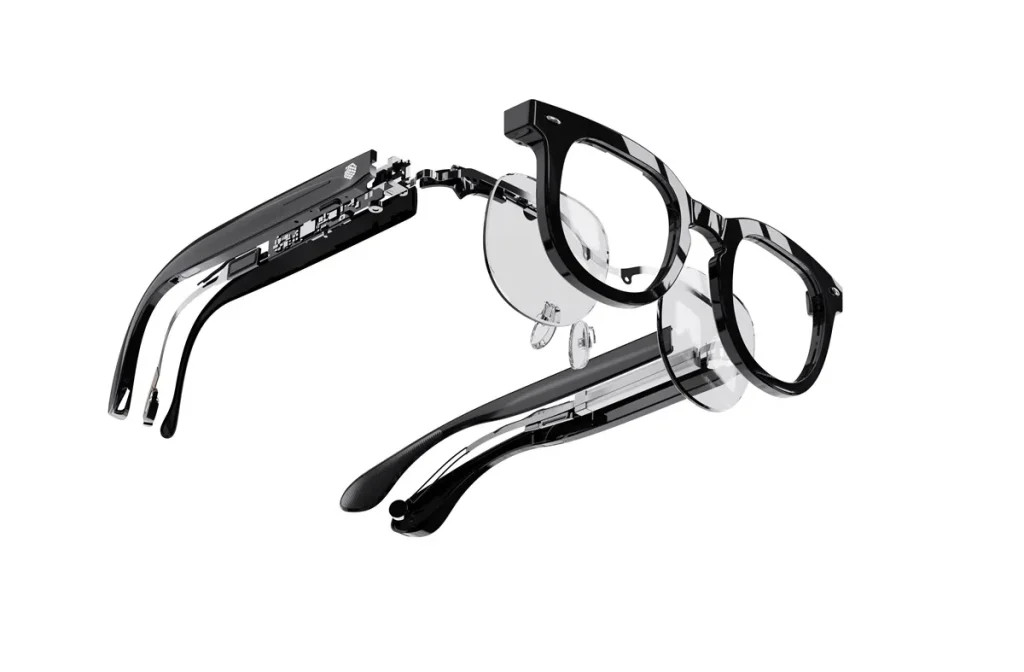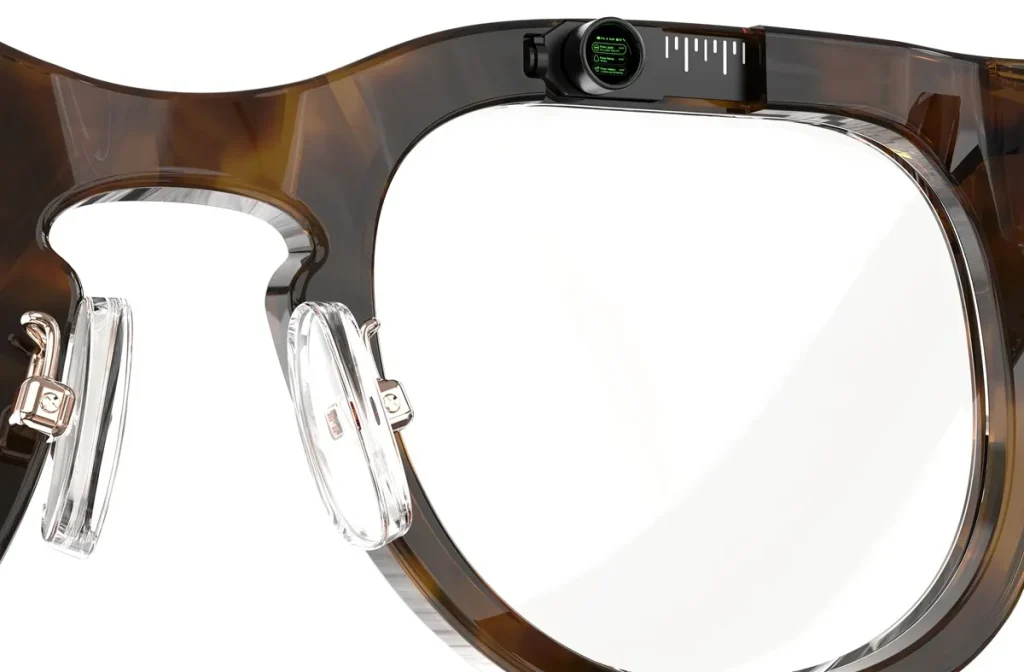Revolutionary Lens-Free Technology: Halliday Introduces Next-Generation AI Eyewear
Reimagining Visual Display: The DigiWindow Breakthrough
In a significant advancement for wearable technology, Halliday has unveiled its groundbreaking smart glasses featuring an unprecedented lens-free augmented reality viewing system. Unlike conventional AR glasses that rely on traditional projection methods, Halliday’s innovative approach directly projects images onto the wearer’s eye, eliminating the need for intermediary lenses.
This revolutionary device incorporates proprietary DigiWindow technology—an industry-first near-eye display system that seamlessly integrates visual information within the user’s natural field of vision. While the frames can accommodate prescription lenses for those requiring vision correction, the AR projection functions independently from any attached corrective elements.
“We’ve created what we believe is the world’s smallest and lightest near-eye display module,” explained a company representative during the product announcement. The engineering team, which includes Stanford-educated Ph.D. specialists, has successfully miniaturized the optical components while maintaining impressive visual quality.

Discreet Design Meets Cutting-Edge Functionality
Drawing inspiration from classic eyewear aesthetics (though notably not affiliated with the fictional character James Halliday from “Ready Player One”), these smart glasses merge vintage design sensibilities with futuristic capabilities. Available in sophisticated matte black or elegant tortoiseshell finishes, the frames maintain a conventional appearance that conceals their advanced technological infrastructure.
Privacy considerations feature prominently in the design philosophy. Unlike competing smart glasses that incorporate external cameras, Halliday’s approach prioritizes user and bystander confidentiality. The only visible indication of the device’s technological nature is a subtle green indicator that appears during nighttime operation.
The glasses incorporate a built-in microphone system that enables natural voice interaction with the integrated AI assistant. The DigiWindow projection creates a virtual 3.5-inch display positioned within the upper-right quadrant of the user’s visual field—carefully positioned to provide information without obstructing primary vision.
Anticipatory Intelligence: Beyond Reactive AI
Where Halliday truly distinguishes itself is through its implementation of proactive artificial intelligence. Unlike conventional voice assistants such as Siri or Alexa that respond only when explicitly summoned, Halliday’s system actively monitors environmental context to anticipate user needs before they’re verbalized.
This contextual awareness enables numerous practical applications, including:
– Automatic meeting summarization
– Real-time conversational suggestions
– Instantaneous translation across 40 different languages
– Echo Mode for reviewing recent conversations
– Voice-activated audio memos
– Instant notification display with quick-response capability
– Teleprompter functionality for presentations
– Turn-by-turn navigation assistance
– Music playback with synchronized lyrics display
– Voice-to-text transcription for notes and reminders
When paired with smartphones via Bluetooth connectivity, these capabilities expand further to create a comprehensive digital assistance ecosystem that remains visually unobtrusive.
Lightweight Engineering and Market Positioning


Weighing a mere 35 grams (1.23 ounces), the Halliday glasses achieve remarkable comfort for extended wear periods. The power management system delivers approximately eight hours of continuous operation per charge—sufficient for typical daily usage scenarios.
In the rapidly expanding smart eyewear market, which analysts project will grow from $5.5 billion in 2023 to $13.2 billion by 2032, Halliday enters as a distinctive competitor against established players like Meta (commanding over 60% of the consumer market with its Ray-Ban series) and XReal (holding 47.3% of the specialized AR segment).
Founded in 2021 in Shenzhen, China, the company remains independently funded with a focused team of 40 specialists. The glasses will make their public debut at the upcoming CES conference, with commercial availability scheduled for late Q1 2025. Pricing will range between $399 and $499, positioning the product as a premium offering within the accessible consumer technology category.
Early user feedback has emphasized the comfort provided by the lightweight design, the intuitive nature of the AI functionality, and the convenience of all-day usability—suggesting potential for strong market reception when the product launches commercially.